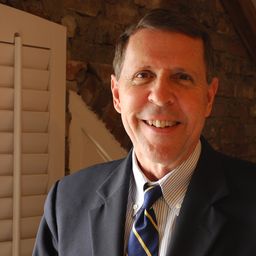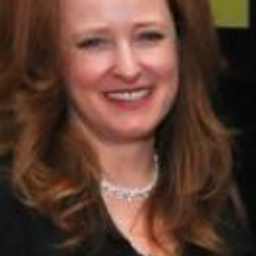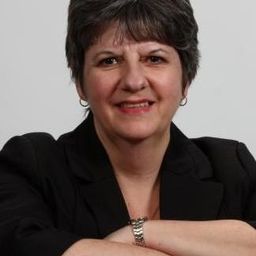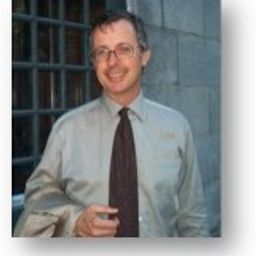
Sessions in which Dr Phaedra Livingstone participates
martes 7 junio, 2016
To date, very little literature explicitly explores the relationships of museums and heritage to historical consciousness, despite the overlapping concerns shared by these respective fields. This roundtable addresses the subject of museums as sites of historical consciousness by reflecting on a recent book project. Museums as Sites of Historical Consciousness: Perspectives on Museum Theory and Practice in Canada (working title, UBC Press, 2016) examines (1) ways that museums create and sha...
Sessions in which Dr Phaedra Livingstone attends
viernes 3 junio, 2016
What does heritage change for tourism? | Le patrimoine, ça change quoi au tourisme? Ce débat veut interroger les relations entre le tourisme et le patrimoine et dépasser ainsi les idées reçues sur l'antagonisme entre le tourisme "corrupteur" et le patrimoine qui en serait la victime. Il s'agit donc de repenser le tourisme comme un réel acteur du patrimoine, de sa valorisation et de son appropriation, y compris par les populations locales. Cela présuppose, au p...
Welcome addresses and cocktail, followed by the Concordia Signature Event "The Garden of the Grey Nuns". As the opening ceremony and cocktail take place in the former Grey Nuns' Motherhouse, recycled into campus residence and reading rooms by Concordia University, delegates will also have the possibility to discover the video Three Grey Nuns (3 minutes, by Ron Rudin and Phil Lichti. Three Grey Nuns recount their memories of communal life in the Grey Nun’s Motherhouse. Built...
sábado 4 junio, 2016
With sustainable development gaining momentum as a priority of UNESCO heritage policies, an increasing number of food-related nominations are being submitted for inscription on the lists of the Convention for the safeguarding of the intangible cultural heritage. The Mediterranean diet, traditional Mexican cuisine and the Japanese dietary culture of washoku are just some examples of this booming phenomenon. Since food and foodways are powerful references for self-representation and ident...
Most of what we experience as heritage emerges into conscious recognition through a complex mixture of political and ideological filters, including nationalism. In these processes, through a variety of devices (museums, scholarly research, consumer reproduction, etc.), dualistic classifications articulate a powerful hierarchy of value and significance. In particular, the tangible-intangible pair, given legitimacy by such international bodies as UNESCO, reproduces a selective ordering of cul...
domingo 5 junio, 2016
We would like to propose a session, building on the one we ran at the 2014 CHS conference in Canberra, on how emotion and affect feature in the fields of heritage and museums studies, memory studies, public history, heritage tourism, studies of the built and urban environment, conservation, archives and any field of study that deals with the emotional impact and use of the past in the present. There is an increasing interest in how emotion is a form of judgement on things that affect ou...
In many emerging economies of the Global South, new urban mega-projects are strategically reviving heritage into simulacra, copies without originals, intended to sell places. We refer to these projects collectively as "New Built Heritage." This type differs from earlier constructions of heritage by canonical state institutions such as museums and ministries of culture in the way its main goal is to differentiate and market places rather than solely to shape collective identities. This session...
With sustainable development gaining momentum as a priority of UNESCO heritage policies, an increasing number of food-related nominations are being submitted for inscription on the lists of the Convention for the safeguarding of the intangible cultural heritage. The Mediterranean diet, traditional Mexican cuisine and the Japanese dietary culture of washoku are just some examples of this booming phenomenon. Since food and foodways are powerful references for self-representation and ident...
lunes 6 junio, 2016
In addressing the theme of this conference, we argue that archaeology, above and beyond the traditional goals of research and post-excavation analyses, may contribute to economic development, education and the creation of identities and communities. Our session "What does Heritage Change? Case Studies in Archaeology," is divided into two themes starting with archaeological practice through its legislation and management. Contract or commercial archaeology increasingly comprises the vast major...
This session is committed to extending previous research collaborations on food and culinary systems as objects of political mobilization – ICA 52, 2006 (Seville); Mexico DF, 2009; ICA 54, 2012 (Vienna); Uqam, 2014 (Montreal). On this occasion, we will deepen and develop ongoing debates about the growing place of food in the cultural politics of heritage and its impacts on society, about which there is still scarce documentation. How are food and culinary heritages constructed and...
The Manifesto of the Association for Critical Heritage Studies (2011) argues for a more critical approach to heritage: heritage from below, writ large, in service of society. The integration of heritage and museum studies with those of community, development, memory, planning, public history and tourism is urged in the Manifesto, as is opening up to other disciplinary traditions such as anthropology, political science and sociology, for dialogue and collaboration on external research and poli...
Private sector cultural heritage evaluation, protection, and management in Ontario exists at the nexus of academic theory, legislative direction, and land-use planning. Heritage work in this context follows a conservation approach to mitigate the loss of identified resources due to urban and infrastructure development. Ideally, the process balances ‘expert knowledge’ with regular and protracted engagement with government agencies, communities, and individuals to create evaluation criteria,...
Around the globe the planning of large-scale memorial-museum projects concerned with violent histories are frequently marred by conflict, omission, and competitions of victimhood. This problem also extends to scholarship on genocide and memory. “Moving memory” is a collaborative multi-sited research exhibition about the Armenian and Roma genocides that proposes creative solutions to these museological and scholarly conflicts around commemoration. Our multi-sited event includes two pr...
martes 7 junio, 2016
We would like to propose a session, building on the one we ran at the 2014 CHS conference in Canberra, on how emotion and affect feature in the fields of heritage and museums studies, memory studies, public history, heritage tourism, studies of the built and urban environment, conservation, archives and any field of study that deals with the emotional impact and use of the past in the present. There is an increasing interest in how emotion is a form of judgement on things that affect ou...
Cities are growingly being faced by social, economic, cultural and environmental challenges imposing health and social risks. Rapid urbanization, population growth, climate change are only some of the major global challenges that a 21st century city needs to respond to. The current challenging global environment has led to the development of new approaches to the concept of "sustainable city" a city that caters for current and future generation. For instance, the idea of smart city (a city th...
An experiment in moving memory, this live event bridges public and academic space to re-imagine knowledge exchange, creation and impact. Around the globe the planning of large-scale memorial-museum projects concerned with violent histories are frequently marred by conflict, omission, and competitions of victimhood. This problem also extends to scholarship on genocide and memory. “Moving Memory: difficult histories in dialogue” is a collaborative multi-sited research exhibiti...
Extant scholarly literature has been documented on heritage and tourism. However, the strong links between heritage and leisure, a broader concept than tourism, have long been neglected. The notion of heritage has pervaded in a variety of humanities-related fields, among them is leisure, which demonstrates the lived experience of locals, and provides indispensible meanings and identity for communities and individuals. And both heritage and leisure root themselves into cultural fabrics of soci...
The Canadian Museum for Human Rights opened to the public in September 2014. Yet this "first museum solely dedicated to the evolution, celebration and future of human rights," met serious criticism from a variety of stakeholders before it even opened its doors. These stakeholders included Indigenous and Ukrainian communities, anti-poverty activists, feminists, gay rights activists, and disability advocates who questioned some of the museum's key curatorial choices in framing issues of righ...
To date, very little literature explicitly explores the relationships of museums and heritage to historical consciousness, despite the overlapping concerns shared by these respective fields. This roundtable addresses the subject of museums as sites of historical consciousness by reflecting on a recent book project. Museums as Sites of Historical Consciousness: Perspectives on Museum Theory and Practice in Canada (working title, UBC Press, 2016) examines (1) ways that museums create and sha...











